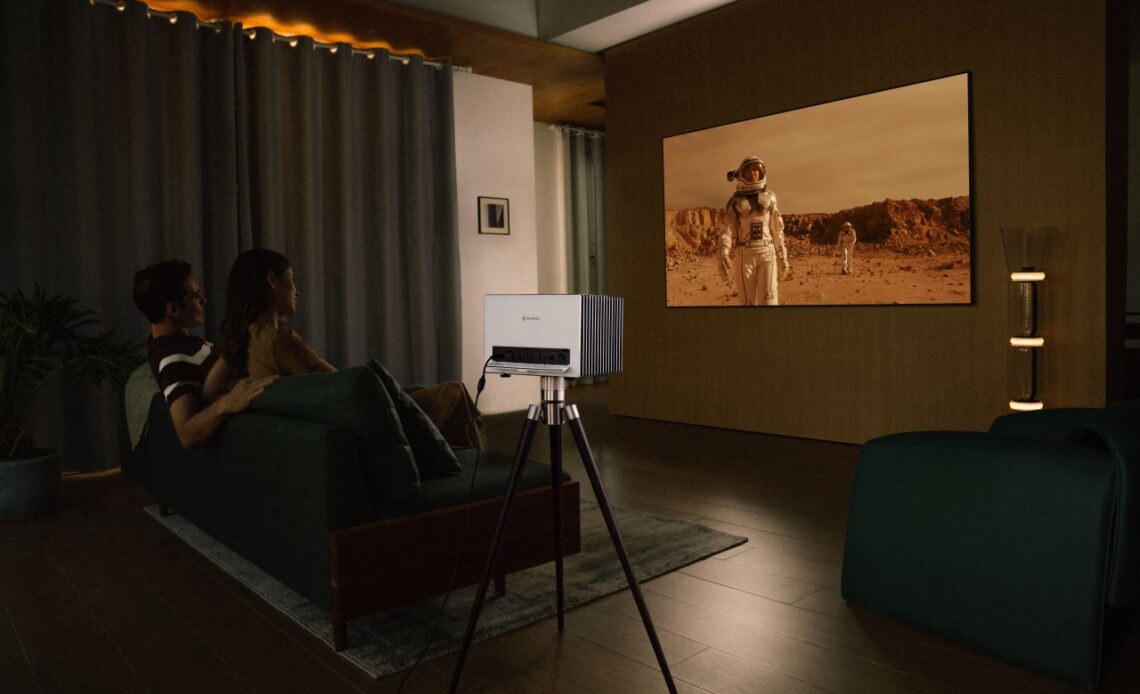Home entertainment has come a long way in recent years. Gone are the days when a bulky TV was the centerpiece of every living room. Today, more people are upgrading their viewing experience with projectors—especially 4K projectors. Whether you’re a movie buff, a sports enthusiast, or an avid gamer, the quality of your display can make or break your experience. In this guide, we’ll walk you through everything you need to know before choosing a 4K projector, including what to look for, the key differences between models, and why the right choice matters for your setup.
Why 4K Resolution Matters
Resolution is the first thing most buyers check when shopping for a projector. A 4K resolution means 3840 x 2160 pixels, which translates into sharper details, richer textures, and a more immersive viewing experience compared to 1080p or lower resolutions. When you’re projecting on a large screen—say 100 inches or more—those extra pixels make all the difference.
For cinephiles who want the cinematic experience at home, a 4K projector delivers a level of clarity and depth that’s hard to match with traditional TVs. Gamers, too, benefit from the added resolution, especially in fast-paced titles where every detail counts.
Factors to Consider When Buying a 4K Projector
Choosing the best 4K projector for your needs isn’t as simple as picking the one with the highest resolution. Here are the main factors you should consider:
1. Brightness (Lumens)
The brightness of a projector is measured in lumens. If you’re setting up your projector in a dark room, 1,500 to 2,000 lumens may be enough. However, for rooms with ambient light, you’ll need at least 2,500 lumens to maintain image clarity.
2. Contrast Ratio
Contrast ratio determines how deep the blacks are and how vivid the colors appear. A higher contrast ratio means better picture quality, especially in dark scenes.
3. Input Lag for Gaming
If you’re a gamer, this is crucial. A 4K gaming projector with low input lag ensures smooth and responsive gameplay. Look for projectors with an input lag of under 16ms for competitive gaming.
4. Throw Distance and Screen Size
Not all rooms are the same size, and neither are projectors. Check whether you need a short-throw, ultra-short-throw, or standard-throw projector based on your space and screen size requirements.
5. HDR Support
High Dynamic Range (HDR) adds depth to colors and brightness levels, making the picture look more realistic. If you’re investing in 4K, HDR is almost a must-have feature.
Best Use Cases for a 4K Projector
Not every projector suits every situation. Here’s how to match the right type of projector with your primary use case:
- Home Theater: For movie lovers, look for a model that supports HDR, has high contrast, and offers great color accuracy.
- Gaming: A 4K gaming projector should have low input lag, high refresh rates, and strong brightness for crisp visuals.
- Sports & Live Events: Opt for projectors with vivid color reproduction and high brightness for clear viewing even in lit rooms.
Common Misconceptions About 4K Projectors
Many buyers assume that higher resolution automatically means a better projector. While resolution is important, other factors like color accuracy, HDR support, and motion handling matter just as much. Another myth is that projectors can’t perform well in bright rooms. While ambient light does affect image quality, there are high-brightness projectors designed to combat this issue effectively.
Setting Up Your 4K Projector for the Best Experience
Buying the right projector is only half the battle; setting it up properly ensures you get the most out of your investment. Here are a few tips:
- Choose the Right Screen: A good projection screen with the right gain factor can enhance brightness and color reproduction.
- Calibrate Your Projector: Adjust color settings, brightness, and contrast for optimal performance.
- Control Ambient Light: Use blackout curtains or set up in a dedicated media room for the best results.
Future Trends in 4K Projection
The world of projectors is evolving rapidly. Laser projectors, for example, are becoming increasingly popular due to their longevity and superior brightness compared to traditional lamp-based models. We’re also seeing advancements in 8K-ready projectors, though they are still quite expensive for the average consumer.
Another exciting development is the integration of smart features, such as built-in streaming apps, voice control, and wireless connectivity. These make projectors more versatile and user-friendly than ever before.
Final Thoughts
If you’re ready to elevate your home entertainment setup, investing in a high-quality 4K projector is a smart move. But remember, the best 4K projector for movies might not be the same as the one optimized for gaming. Always consider your primary use case, the size of your room, and your budget before making a decision.
For gamers, prioritizing a 4K gaming projector with low latency and high refresh rates will ensure smooth gameplay without input lag. For movie lovers, HDR support, deep contrast, and accurate color reproduction are key features.
Ultimately, a 4K projector can transform your living space into a personal cinema or a high-end gaming arena—making every viewing experience unforgettable.

